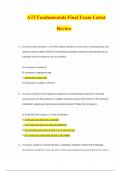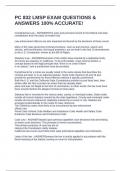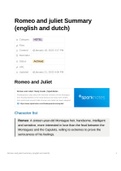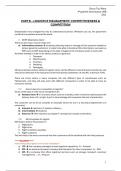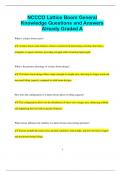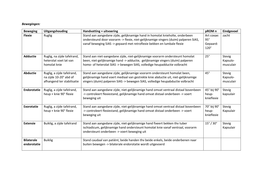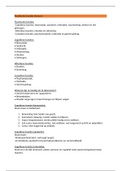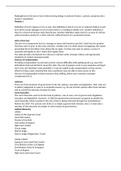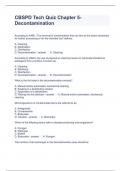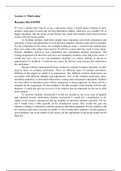Review
1. A nurse is administering 1 L of 0.9% sodium chloride to a client who is postoperative and
has fluid-volume deficit. Which of the following changes should the nurse identify as an
indication that the treatment was successful?
A) Increase in hematocrit
B) Increase in respiratory rate
C) Decrease in heart rate
D) Decrease in capillary refill time
2. A nurse working in the emergency department is witnessing the signing of informed
consent forms for the treatment of multiple clients during her shift. Which of the following
individuals' signatures may the nurse legally witness? (Select all that apply.)
A) A teacher who brings in a 7-year-old student
B) A 16-year-old client who is married
C) A 27-year-old client who has schizophrenia
D) An adoptive parent who brings in his 8-year-old son
E) A 17-year-old mother who brings in her toddler
3. A nurse is caring for a client who has a respiratory infection. Which of the following
techniques should the nurse use when performing nasotracheal suctioning for the client?
, A) Insert the suction catheter while the client is swallowing.
B) Apply intermittent suction when withdrawing the catheter.
C) Place the catheter in a location that is clean and dry for later use.
D) Hold the suction catheter with her clean, nondominant hand.
4. A nurse is teaching a client about dietary management of hypercholesterolemia. Which
of the following foods should the nurse suggest that the client add to his diet?
A) Beef liver
B) Shellfish
C) Egg yolks
D) Avocados
5. A nurse is preparing to transfer a client who can bear weight on one leg from the bed to
a chair. After securing a safe environment, which of the following actions should the
nurse take next?
A) Rock the client up to a standing position.
B) Pivot on the foot that is the farthest from the chair.
C) Assess the client for orthostatic hypotension.
D) Apply a gait belt to the client.
, 6. A nurse is caring for a group of clients. Which of the following actions should the nurse
take to prevent the spread of infection?
A) Carry a client's soiled linens out of the room in a mesh linen bag.
B) Place a client who has tuberculosis in a room with negative-pressure airflow.
C) Provide disposable plates and utensils for a client who is HIV-positive.
D) Dispose of a client's blood-saturated dressing in a trash bag inside a second trash
bag.
7. A nurse is caring for a client who does not speak the same language as the nurse. When
working with the client through an interpreter, which of the following actions should the
nurse take?
A) Talk directly to the client, instead of the interpreter, when speaking.
B) Use a family member as the client's interpreter.
C) Make sure that the interpreter has a college degree.
D) Avoid asking the client personal questions through the interpreter.
8. A nurse is caring for a client who has an indwelling urinary catheter. Which of the
following assessment findings indicates that the catheter requires irrigation?
A) Urine has an unusual odor.
B) Urine specific gravity is 1.035.
C) Bladder scan shows 525 mL of urine.
D) Urine is positive for ketones.
9. A nurse is caring for a client who has diarrhea due to shigella. Which of the following

